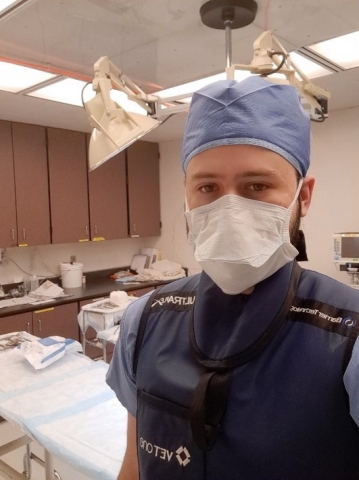Bram Hunt, ARCS Scholar 2018-2019, is working diligently to complete his Ph.D. in Biomedical Engineering under the mentorship of Dr. Ravi Ranjan, a clinical electrophysiologist. His current project applies modern engineering technologies, particularly artificial intelligence (AI) and sophisticated electrophysiology analysis methods, to the treatment of atrial fibrillation.
Atrial fibrillation (AFib) is a common electrical disease of the heart which can lead to heart failure and stroke. However, current treatments for AFib only have mixed success, and Bram is working to create improved treatments which are better at both stopping and preventing AFib. Last year, he developed an AI to predict the time development of AFib from fibrillatory heart signals, a tool allowing physicians to adjust treatment options based on the severity of the disease. He recently presented this AI at Computing in Cardiology, an international scientific conference, and published the results as a first-author proceedings paper in IEEE.
For his primary research project, he has completed data collection for his initial aims and will be presenting results from this work at an upcoming conference of the Heart Rhythm Society in Boston, MA. This work demonstrated how driving mechanisms of AFib increase in prevalence over time, complicating efforts to directly treat them. He plans to publish the full results of this work as a manuscript later this year. This will lay the foundation for another aim of his research: creating and testing new AFib treatment techniques that account for both AI and conventional algorithm-based predictions of future driving mechanisms. He also has begun work on a collaborative industry project with Biosense-Webster to develop new catheter technologies for treating AFib and other cardiac diseases.
In terms of academic progress, Bram recently passed his doctoral qualifying examination and has now obtained his Master of Science in Biomedical Engineering degree. Both are important milestones towards completion of his Ph.D. program. He will be defending his dissertation research proposal later this year, a required step before the dissertation defense. He wants to highlight that the support of the ARCS Foundation has been instrumental in making this work possible, and he remains extraordinarily grateful to everyone who has contributed to his research.

